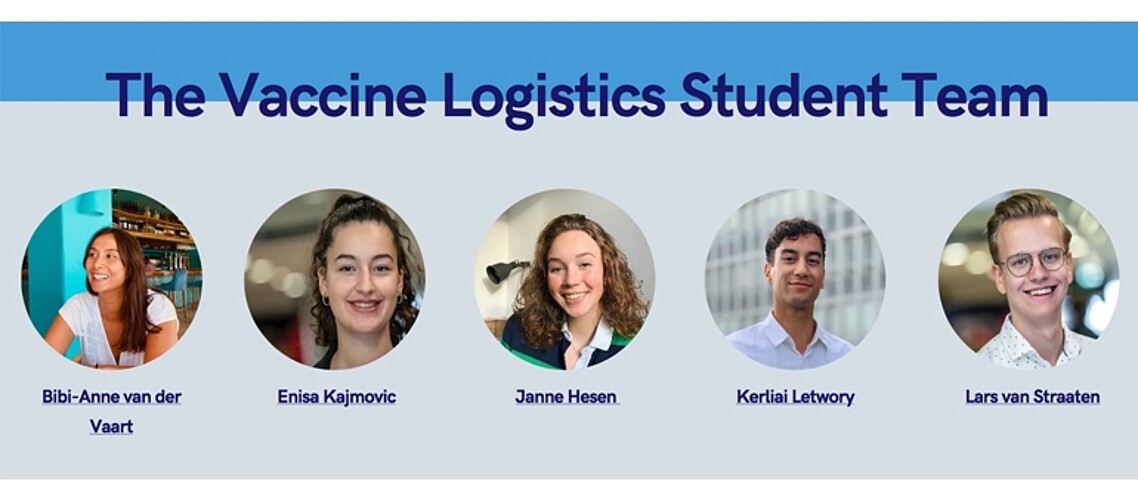The team of students: Bibi-Anne van der Vaart, Enisa Kajmović, Janne Hesen, Kerliai Letwory and Lars van Straaten came together during the course on Distribution Networks; all master students taking this core course were asked to propose their ideas to address this important societal challenge. The best and most enthusiastic students formed the Vaccine Logistics Student Team under the supervision of Dr Niels Agatz, associate professor of Transportation and Logistics at RSM.
Dr Agatz had previously considered this issue in his blog on this topic, Vaccination logistics can reduce waste and delays published on RSM’s research platform, RSM Discovery.
The students’ analysis revealed several elements for their vaccination strategy: vaccination locations, registration, inventory and transportation planning. For each one they identified the important decisions and compared the approaches in other countries. They were then able to develop a vaccination strategy for the Netherlands. The team also proposed which quantitative analyses could be used to assess and optimise vaccinations.
The first prize went to 'A fast and responsive supply chain' from student teams under the supervision of Lector Dennis Moeke of HAN University of Applied Sciences and Prof. Rob van der Mei of the Centrum Wiskunde & Informatica and VU University Amsterdam.
The team of RSM students is happy to have been able to contribute to such an important and critical challenge during COVID-19. “It was a great opportunity to apply our supply chain knowledge to such a timely, urgent and important topic. We hope that our findings can contribute to the Dutch vaccination campaign,” they said.
How many locations needed?
The RSM students evaluated the initial Dutch strategy of using 25 different locations for public vaccinations, but concluded that more locations would be needed if the vaccination programme were to be scaled up so that people between 18 and 60 with no medical conditions could all be vaccinated by the summer of 2021.
The team devised ideas to increase the speed of delivering vaccinations by better organising the location and inoculation rates. They used queueing theory – which deals with problems which involve queuing –to determine the optimal number of lanes at vaccination locations while taking into account the requirement for everyone to keep at least 1.5 metres apart according to social distancing rules. The team also discussed the uncertainties that complicate the execution of vaccination strategies, such as the availability and delivery of vaccine doses.
Their report concludes that vaccination programmes should be robust and agile to deal with the uncertainty. They propose that scenario analyses should be used to prepare for changes in the context or situation.
Thorough international analysis
TKI Dinalog’s independent expert jury of logistics experts and academics was chaired by TKI Logistics scientific director Albert Veenstra, TKI Directors Bart Ahsmann, Fred Boekhorst and Nico van Meeteren of ClickNL, Dutch Digital Delta and Health Holland respectively, plus Prof. Steef van de Velde, former dean and professor of Management and Technology at RSM, and Peter Bertens, deputy director of the Association of Innovative Medicines. They evaluated reports from several universities and schools of applied science. According to the judges: “The [solution from the RSM team] provides a thorough and interesting international analysis of the vaccination problem, identifying best practices from an international perspective. It is detailed enough to provide a good platform for both the design and monitoring of a general vaccination programme. This solution delivers a proposed roadmap to improvements of the current vaccination strategy as well as performance indicators for future vaccination strategies.” TKI Dinalog will consider all of the submissions it received in the development of the national Deltaplan Pandemieën for implementing the national vaccination programme.



